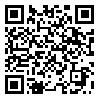BibTeX | RIS | EndNote | Medlars | ProCite | Reference Manager | RefWorks
Send citation to:
URL: http://mjiri.iums.ac.ir/article-1-1962-en.html

 , Mohammad Reza Vaez-Mahdavi
, Mohammad Reza Vaez-Mahdavi 
 , Soghrat Faghihzadeh
, Soghrat Faghihzadeh 
 , Bahman Cherghian
, Bahman Cherghian 
 , Alireza Esteghamati
, Alireza Esteghamati 
 , Ali Asghar Farshad
, Ali Asghar Farshad 
 , Mehdi Golmakani
, Mehdi Golmakani 
 , Ali-Asghar Haeri-Mehrizi
, Ali-Asghar Haeri-Mehrizi 
 , Hossein Hesari
, Hossein Hesari 
 , Naser Kalantari
, Naser Kalantari 
 , Mohammad Kamali
, Mohammad Kamali 
 , Ramin Kordi
, Ramin Kordi 
 , Hossein Malek-Afzali
, Hossein Malek-Afzali 
 , Ali Montazeri
, Ali Montazeri 
 , Maziar Moradi-Lakeh
, Maziar Moradi-Lakeh 

Background:
Current evidence consistently confirm inequalities in health status among
socioeconomic groups, gender, ethnicity, geographical area and other social
determinants of health (SDH), which adversely influence health of the
population. SDH refer to a wide range of factors not limited to social
component, but also involve economic, cultural, educational, political or
environmental problems. Measuring inequalities, improving daily living
conditions, and tackling inequitable distribution of resources are highly
recommended by international SDH commissioners in recent years to ‘close the
gaps within a generation’. To measure inequalities in socio-economic
determinants and core health indicators in Tehran, the second round of Urban
Health Equity Assessment and Response Tool (Urban HEART-2) was conducted in
November 2011, within the main framework of WHO Centre for Health Development
(Kobe Centre).
Method:
For ‘assessment’ part of the project, 65 indicators in six policy domains
namely ‘physical and infrastructure’, ‘human and social’, ‘economic’,
‘governance’, ‘health and nutrition’, and also ‘cultural’ domain were targeted either
through a population based survey or using routine system. Survey was conducted
in a multistage random sampling, disaggregated to 22 districts and 368
neighborhoods of Tehran, where data of almost 35000 households (118000
individuals) were collected. For ‘response’ part of the project, widespread
community based development (CBD) projects were organized in all 368
neighborhoods, which are being undertaken throughout 2013.
Conclusion:
Following the first round of Urban HEART project in 2008, the second round was
conducted to track changes over time, to institutionalize inequality assessment
within the local government, to build up community participation in
‘assessment’ and ‘response’ parts of the project, and to implement appropriate
and evidence-based actions to reduce health inequalities within all
neighborhoods of Tehran.
| Rights and permissions | |
 |
This work is licensed under a Creative Commons Attribution-NonCommercial 4.0 International License. |



